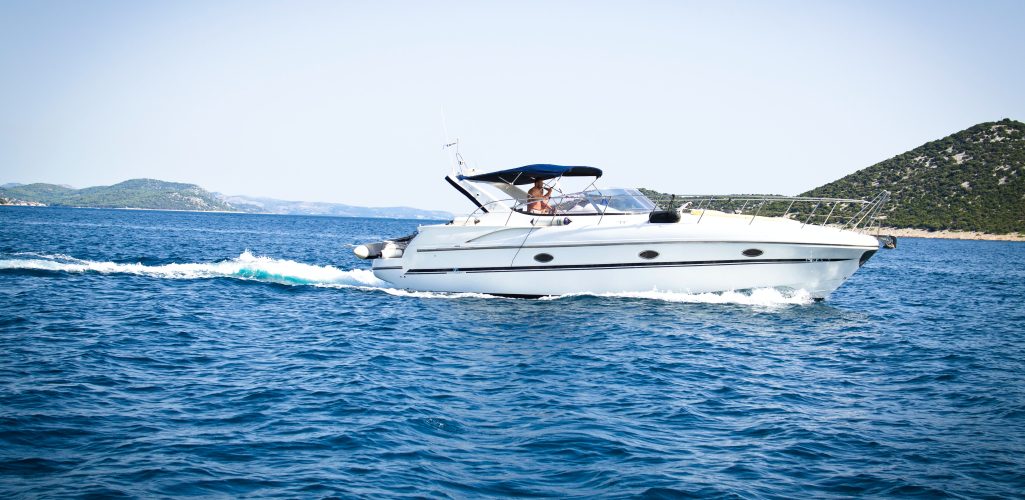Owning a boat can be a source of immense pleasure and relaxation, allowing enthusiasts to explore vast waterways and create lasting memories with family and friends. However, just like any valuable possession, boats are subject to risks and uncertainties. To safeguard their investments, boat owners often opt for boat insurance, a crucial financial tool that protects against various perils.
While boat insurance offers a comprehensive safety net, boat owners understand that not everything is covered. This article delves into the intricacies of boat insurance, highlighting what it doesn’t cover and why boat owners should consider supplemental policies to fill potential gaps.
What Boat Insurance Covers
Boat insurance is designed to protect boat owners from financial losses resulting from damage, theft, or liability claims associated with their watercraft. Similar to car insurance, it offers various coverage options tailored to the specific needs and risks of each boat. The core components of boat insurance typically include:
a) Physical Damage Coverage: This component reimburses the boat owner for repairs or replacement of the vessel if it is damaged due to a covered event such as collision, fire, vandalism, or severe weather.
b) Liability Coverage: Liability insurance protects the boat owner if their vessel causes bodily injury or property damage to others. It covers legal expenses and compensation for injured parties up to the policy’s limits.
c) Medical Payments Coverage: Medical payments coverage provides reimbursement for medical expenses incurred by the boat owner and passengers in case of an accident, regardless of fault.
d) Uninsured/Underinsured Boater Coverage: This type of coverage offers protection when the boat owner’s vessel is involved in an accident with an uninsured or underinsured boater who is at fault.
What Boat Insurance Typically Does Not Cover
While boat insurance is comprehensive, there are several exclusions that boat owners should be aware of. These exclusions can vary depending on the insurance provider and the specific policy. Some of the most common exclusions include:
a) Wear and Tear: Boat insurance coverage is not meant to cover regular wear and tear or gradual deterioration of the vessel. Maintenance and routine repairs are the responsibility of the boat owner.
b) Manufacturer Defects: If a defect in the boat’s design or construction causes damage, most standard boat insurance policies will not cover it. Recalls and warranty claims are avenues to address such issues.
c) Intentional Damage: Boat insurance in Arkansas does not provide coverage for damage caused intentionally by the boat owner or any other party.
d) Damage from Lack of Maintenance: Neglecting to properly maintain the boat can lead to damage, but insurance typically won’t cover these incidents.
e) Consequential Losses: Some policies exclude coverage for indirect or consequential losses that result from a covered event. For instance, if a boat engine failure leads to a missed vacation, the vacation expenses may not be reimbursed.
f) Racing and High-Speed Activities: If the boat is involved in a racing event or any high-speed activities, coverage may be excluded unless specifically added through a separate endorsement.
g) Commercial Use: Standard boat insurance policies may not cover boats used for commercial purposes. Commercial boat owners should consider specialized insurance options.
h) Pollution Liability: Boat insurance usually excludes coverage for pollution or environmental damage caused by the vessel, such as oil spills.
i) War and Terrorism: Damage resulting from acts of war or terrorism is generally not covered by standard boat insurance policies.
Additional Coverage Options for Boat Insurance
To address some of the gaps in a standard boat insurance policy, boat owners can consider purchasing additional coverage options. These supplemental policies can provide enhanced protection and peace of mind:
a) Personal Property Coverage: Standard boat insurance may offer limited coverage for personal belongings on board. Purchasing personal property coverage can help protect valuable items like fishing equipment, electronics, and clothing.
b) Salvage and Wreck Removal: In the event of a boat sinking or being damaged, the cost of salvage and wreck removal can be significant. Adding this coverage ensures that the expenses associated with retrieving the vessel are covered.
c) Hurricane and Named Storm Coverage: For boat owners located in hurricane-prone regions, this coverage can be crucial to protect against hurricane-related damages, which may not be included in a standard policy.
d) Navigational Area Extension: If the boat owner plans to venture beyond their standard navigational limits, this extension can provide coverage for voyages in new waters.
e) Agreed Value Coverage: While standard boat insurance often pays the actual cash value (ACV) of a vessel at the time of the loss, agreed value coverage ensures that the boat owner receives the pre-determined value of the boat, which can be beneficial for owners of well-maintained and high-value boats.
What Boat Insurance Does and Does Not Cover
Boat insurance is a vital tool for protecting boat owners from the financial repercussions of unforeseen events. However, it is essential to understand that boat insurance does not cover everything. It typically excludes wear and tear, manufacturer defects, intentional damage, and other specific perils.
Boat owners should thoroughly review their policies, seek advice from insurance experts, and consider supplemental coverage options to ensure they have comprehensive protection that suits their unique needs and usage patterns.
By being informed and proactive, boat owners can navigate the waters with confidence and fully enjoy the pleasures of boat ownership. Get a free quote for boat insurance with G&G Independent Insurance and ensure smooth sailing on every adventure.


